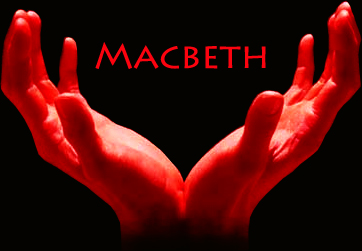Monday, November 28, 2011
Meet John Donne
Here are some prime cuts from John Donne:
I am two fools, I know,
For loving, and for saying so
In whining poetry.
- from "The Triple Fool"
Love built on beauty, soon as beauty, dies.
- from "Elegy II: The Anagram"
Any man's death diminishes me, because
I am involved in Mankind; And therefore
never send to know for whom the bell tolls;
it tolls for thee.
- from "Meditation XVII"
Click here for more on John Donne, the great poet, lawyer, world explorer, chaplain, preahcer, womanizer, and [eventual] family man.
Labels:
John Donne
Thursday, November 10, 2011
Don't say "Macbeth" in a theater!

Did you know that saying "Macbeth" in a theater is considered by theater folk to be very bad luck. In fact, it's widely acknowledged as being even more ominous than the time-honored classis, "Break a leg."
Here's a rundown from Listverse, a very cool web site that lists Top 10s:
Theater folk avoid using it, referring to the play as ‘The Scottish Play’ or ‘The Bard’s Play’. If the name is spoken in a theater, there is a cleansing ritual one can do to rectify the mistake. The ritual I am familiar with is: The person is required to leave the theater building, spit, curse and spin around three times, before begging to be allowed back inside. Other variants include: Reciting a line from another Shakespearean work, brushing oneself off, running around the theater counter clock-wise, or repeating the name 3 times while tapping their left shoulder.
There are several possible origins for this superstition. One option is to believe in witchcraft. According to one superstition, Shakespeare himself got the words from a coven of real witches, who, after seeing the play weren’t impressed by their portrayal. Another says the props master from the original performance stole a cauldron from said coven, and the witches, again, weren’t impressed. The best witchcraft explanation is that Shakespeare put a curse on the play so that no-one, other than him, would be able to direct it correctly.
Another origin is that there is more swordplay in it than most other Shakespeare plays, and, therefore, more chances for someone to get injured. But the option I believe is most likely is that, due to the plays popularity, it was often run by theaters that were in debt and as a last attempt to increase patronage; the theaters normally went bankrupt soon after.
NB: The superstition is even parodied in an episode of The Simpsons. While visiting London, the Simpson family comes across Sir Ian McKellen outside a theater showing “Macbeth.” Every time “Macbeth” is said, something happens to McKellen.
Patrick Stewart as Macbeth
Take a look at some of the other scenes/chapters if you have time; once you know the story, you can better appreciate this new take on an old classic.
Watch Macbeth on PBS. See more from GREAT PERFORMANCES.
Subscribe to:
Posts (Atom)
